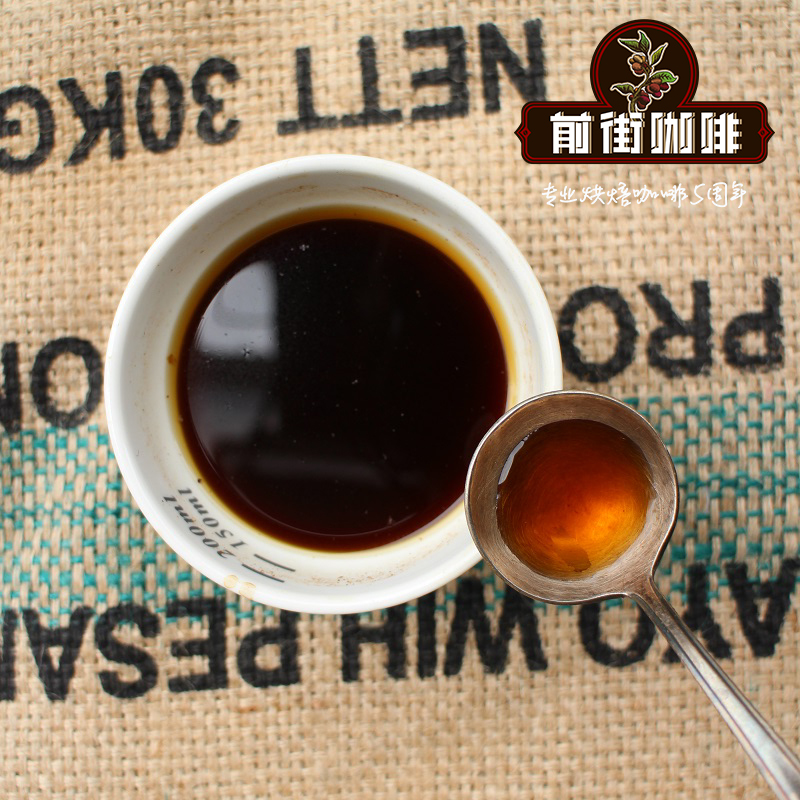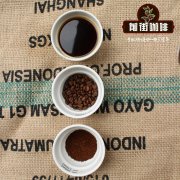Kenyan Coffee how about Kenyan Coffee Fine Coffee

Professional coffee knowledge exchange more coffee bean information please follow the coffee workshop (Wechat official account cafe_style)
Kenya KENYA
Kenya, located in East Africa, is one of the major coffee producing countries. More than 6 million people in the country are engaged in the coffee industry, mostly in the form of a combination of small farmers, wet treatment plants and cooperatives. Kenyan coffee is mainly treated with water. Coffee trees are mostly planted in mountainous areas with elevations of 1400-2000 meters above sea level. The producing areas are Ruiri,Thika, Kirinyaga, Mt.Kenya West, Nyeri, Kiambu and Muranga. Among them, the foothills of Mt.Kenya and Aberdare are the main producing areas. Kenya coffee is graded according to particle size and flavor. The particle size of AA, AB and PB,AA is 17 mesh and 18 mesh, and AB is 15 order and 16 order. PB is PEABERRIES. If the flavor grade is TOP, PLUS and FAQ,FAQ- "Fair to Average Quality", there will be some slight defective beans, but the flavor will not be affected.
The main varieties of Kenya are SL28 and SL34. It was cultivated and named by the "Scott Laboratories" laboratory in 1930. According to botanists in SL laboratory, SL28 and SL34 are genetic variants. Among them, SL28 has a mixed pedigree of French missionaries, mochas and Yemens Tibica. The goal of cultivating SL28 was to mass produce coffee beans with high quality and resistance to diseases and insect pests. Although the yield of SL28 was not as high as expected, the copper leaf color and broad bean-shaped beans have great sweetness, balance and complex flavor, as well as remarkable citrus and plum characteristics. SL34 is similar to SL28 in flavor, with a heavier, fuller and cleaner finish than SL28, except for the complex acidity and great sweetness of the finish. SL34 has French missionaries, bourbon, and more Tibica ancestry. Dou looks similar to SL28, but is more adaptable to sudden heavy rain. It is these two important varieties that lead us to know the unique Kenyan coffee beans.
Kenya is north of Ethiopia, the origin of Arabica coffee trees, but it was not until the beginning of the 20th century that coffee cultivation began. In the 19th century, missionaries introduced Arabica trees from Yemen, but did not plant them in large quantities. It was not until 1893 that coffee was cultivated on a large scale after the introduction of Brazilian ancient bourbon seeds. That is to say, the current Kenyan coffee is of Brazilian origin. Due to the differences in soil, water, climate and treatment methods, the flavor of Kenya beans is quite different from that of Brazilian beans.
Kenyan coffee is characterized by a distinctive fruity aroma. Try to find this flavor in the coffee and pay attention to how it feels in the mouth. One of the common fruit aromas is citrus. Kenyan coffee has a multi-layered taste and the acidity of fruit juice, perfect grapefruit and wine flavor, moderate mellow. It has a fresh flavor and is most suitable for drinking iced coffee in summer. When tasting this coffee, it will certainly give me the best coffee experience if it is paired with sour fruits such as grapefruit.
This typical coffee is cultivated in the African highlands. Its coffee beans are thick and round in meat, strong in flavor and good in quality, and are usually roasted shallowly. Getting up early in the morning to have a cup of Kenya has a refreshing effect. The country is crossed by the equator, and coffee is a crop grown in the country a long time ago. With a slightly sour, thick aroma, raw bean particles are small, green to grayish green. Kenya's coffee beans are water-washed Arabica, which is famous for Kenya's Arabica.
Product name: Kiambu planting Noodle: about 120m altitude: 1750 m soil: fertile loam treatment method: washing treatment (Washed Process) Certificate: UTZ good Coffee Certificate (UTZ Certified)
Important Notice :
前街咖啡 FrontStreet Coffee has moved to new addredd:
FrontStreet Coffee Address: 315,Donghua East Road,GuangZhou
Tel:020 38364473
- Prev

Papua New Guinea png Coffee Brand Papua New Guinea Coffee producing area
Professional coffee knowledge exchange more coffee bean information please follow the coffee workshop (Wechat official account cafe_style) there are many countries in the world have not attracted our attention, Papua New Nevia is one of them. Papua New Guinea is located in the eastern half of Nineya Island in the southwest Pacific Ocean. It is a former British colony (now a member of the Commonwealth) and borders Indonesia's Iria to the west.
- Next

Malawi Qixi Coffee Manor introduces the flavor characteristics of Malawian coffee.
Professional coffee knowledge exchange more coffee bean information Please follow Coffee Workshop (Wechat official account cafe_style) Lawe is a small country in southern Africa and a country in the interior of the sea. Most of its coffees are grown in the northern plateau region, but the output is not large. The coffee grown in Lawe is all Arabica, and the quality has been maintained at a comparable level, compared to Ken.
Related
- Does Rose Summer choose Blue, Green or Red? Detailed explanation of Rose Summer Coffee plots and Classification in Panamanian Jade Manor
- What is the difference between the origin, producing area, processing plant, cooperative and manor of coffee beans?
- How fine does the espresso powder fit? how to grind the espresso?
- Sca coffee roasting degree color card coffee roasting degree 8 roasting color values what do you mean?
- The practice of lattes: how to make lattes at home
- Introduction to Indonesian Fine Coffee beans-- Java Coffee producing area of Indonesian Arabica Coffee
- How much will the flavor of light and medium roasted rose summer be expressed? What baking level is rose summer suitable for?
- Introduction to the characteristics of washing, sun-drying or wet-planing coffee commonly used in Mantenin, Indonesia
- Price characteristics of Arabica Coffee Bean Starbucks introduction to Manning Coffee Bean Taste producing area Variety Manor
- What is the authentic Yega flavor? What are the flavor characteristics of the really excellent Yejasuffi coffee beans?

